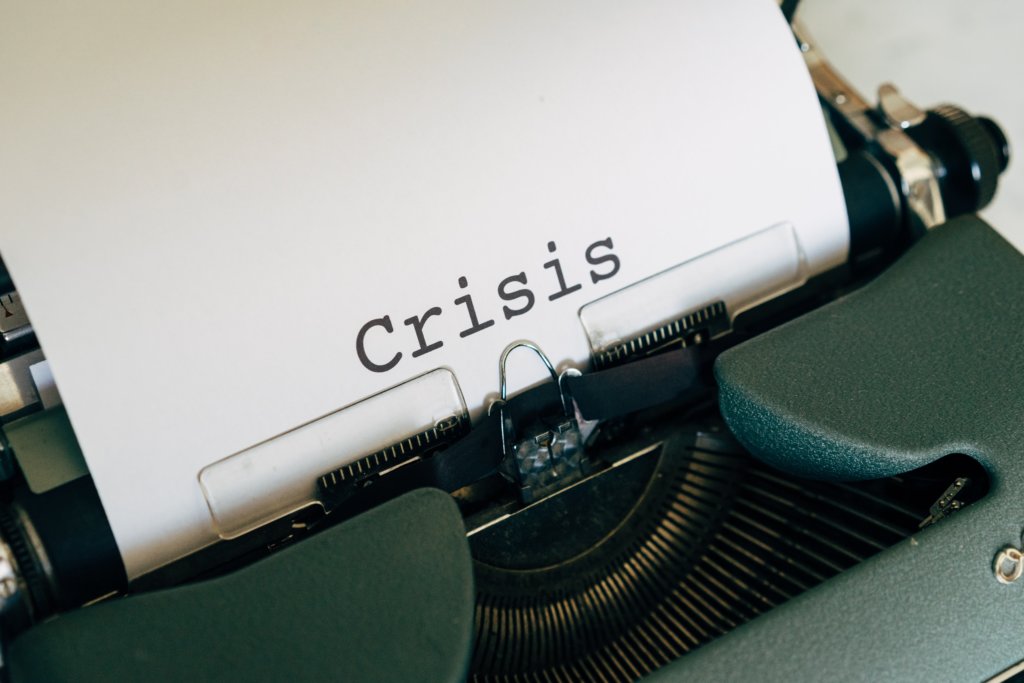
What Your Brand Should (and shouldn’t) Post on Social Media During a Crisis
It can feel impossible to know what to post on social media in a crisis, especially one that is impacting the world globally. It’s hard enough to find appropriate words to say as an individual when someone you care about has endured a personal tragedy. Multiply that person by 7 billion, put the whole exchange in a public forum, and then you’re getting close to understanding the level of pressure brands face when navigating social media in a crisis.
As a brand, particularly if you don’t have a background in crisis communication (and sometimes even if you do!), posting on social can feel like a minefield, full of traps waiting to be stepped in. Your online footprint is immortal, and putting your foot in it on social media can be disastrous for a brand. Add to that the growing rampancy of ‘cancel culture’ and a generalized decrease in consumer spending, and many brands are terrified to say anything at all – for fear of losing followers, customers and sales!
Some even contemplate ‘going dark’ in a crisis– which is also not ideal. Disappearing in a crisis can show a lack of integrity and confidence in your brand’s identity. It can even suggest that you only care about communicating with your customers when they’re able to actively purchase from you.
Speaking of the bottom dollar, in a crisis, yours is likely to be going down, unless you have a disaster/recession-proof business. So, it’s more important than ever to sell your products and services to stay afloat – but your audience’s spending priorities have completely changed, and people don’t particularly want to be ‘sold to.’
Many just don’t have the money to spend, and their own businesses and jobs are on the line. Pivoting to understand this is essential, both in your sales approach and your communication style on social media.
So, where to start? Here are some key points to consider as a brand when posting on social media in a crisis:
Understand the crisis
Do your research, keep up to date on the statistics and ensure you have a relatively robust understanding of how the crisis is affecting all sorts of different industries, locations, people, and what it means to the economy. Understanding the crisis in a broader sense (outside of just how it affects you and your business) is crucial. It will help you avoid tripping up and saying something offensive to a demographic you hadn’t considered.
Read the room
Before you post – find out: what is the general vibe in your marketplace among your customers and followers? Don’t assume you know, based on what you are feeling, or what you ‘think’ they’re feeling. Take the time to go through your followers’ feeds and do a mini audit of their socials.
Get to know your customers all over again – this is a useful exercise whether there’s a global crisis or not. Get a feel for the type of content they are posting and reposting, what kind of comments they’re leaving and what kind of interactions are taking place in your community.
You can even ASK. Total transparency and honesty at a time when companies are ramming a regurgitated corporate line down people’s throats can be really refreshing. Allow your loyal followers to tell you directly what they need.
Consider something like:
“To our friends and family: like you, we are trying to make sense of what is happening, and grappling with how this crisis will affect not only our business but our community, our country, and the world at large. One thing we do know is that staying connected is so important at a time like this, and social media is the most powerful tool we have to maintain our connection. We are all in this together.
With that said, we want to know what you need from us right now. What kind of content would be useful/helpful/entertaining/reassuring to you? Or what would you rather NOT see from us?
We so appreciate your feedback and aim for our platforms to be safe online spaces for you to visit during this time.”
Find a balance (and know you can’t please everyone)
There are a myriad of different tones and approaches you can take as a brand, and no matter how innocuous they each may seem, ALL of these different approaches can be perceived as offensive if delivered on the wrong day, to the wrong person.
Humor can be considered thoughtless, ‘silver lining’ content can be seen as minimizing the tragedy going on, and a barrage of sobering news stories can be considered depressing and anxiety-inducing, making people feel like they need to ‘switch off.’
The first thing to realize is that you’re never going to make everyone happy 100% of the time in a crisis. The best you can do is balance out the types of content you’re posting.
Share a healthy combination of hard facts, positivity and feel-good content, edu-tainment, and escapism. Think of your social platform as a microcosm of what everyone is going through during a crisis – which is usually mixed emotions.
Humor in a crisis
Speaking of humor – let’s discuss.
Finding something to laugh about in a crisis is essential to maintaining mental wellness, breaking the tension, and staying sane! But brands using humor on social media during a crisis can be tricky.
Before you use humor on your brand’s social media amid a crisis, ask yourself questions like:
Is this joke at the expense of others? Is this humor making light of the tragedy of the situation? Am I reposting humorous content from a source that is often offensive? Or:
Is this joke in alignment with my brand values?Is dark humor in alignment with my brand values?Is using humor at all in alignment with my brand values?Is it worth the risk of alienating my followers?
For some brands, humor, sarcasm, and even dark humor and is in their DNA. Their followers have come to expect and look forward to it, especially during tough times. For other brands, for whom humor isn’t usually part of their social tone, it may feel a little jarring, forced and out of left field. If this is you – leave the joking around to the meme accounts.
What you don’t want is to come across tone-deaf, offensive, or as though you are making light of a crisis that is seriously affecting millions of people. It’s a fine line – humor can provide much needed respite in a crisis, but what kind of humor? And do people want to hear it from you or your business?
GENERAL DOS AND DON’TS
Do:
- Share information about the crisis that is relevant to your business, peers and consumers, from reputable and reliable sources.
- Get creative with how you can recession/quarantine proof your business – what can you do remotely? What services do you offer in person that you can digitize? Hint: downloadable digital courses and products are great.
- Offer your followers free help/tips/advice (relating to your business), and present it in a format that they can easily access. For example:
Immune boosting recipes
Games to play with your family
Living room workouts that don’t require equipment
Meditation and positive affirmations
- Offer escapism, if it’s part of your brand DNA, but only in a way that makes sense and doesn’t read as tone-deaf.
- Give back if you can – this doesn’t have to be monetary. You could team up with other brands, host an online fundraiser, donate free products or services to those worst affected.
Don’t:
- Be glib about the issue
- Make polarizing political statements
- Make insensitive jokes (leave this to the meme accounts)
- Repost things without checking sources/verifying facts
- Go into ‘hard sell’ mode
- Appear to be profiteering from or taking advantage of those affected by the crisis
